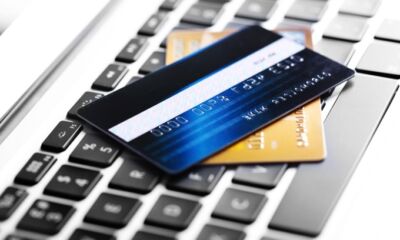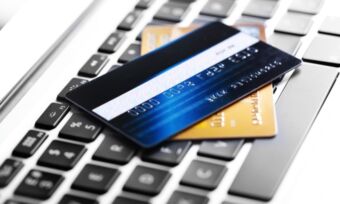Secured credit cards – what are your options?

KEY POINTS
- Secured credit cards are not currently offered in Australia.
- Secured credit cards require you to provide a security deposit which is used as collateral for the card.
- If you have a poor credit score, carefully consider whether applying for a credit product is a good idea for you.
What is a secured credit card and who are they for?
Secured credit cards are often taken out by people who are new to credit or want to build their credit history. Because of the required security deposit, secured credit cards may be easier to qualify for compared with traditional unsecured credit cards.
Secured credit cards require you to provide a security deposit, which is used as collateral for the card. So if you default on your credit card payments, the provider can keep your deposit. The security deposit also typically influences the credit limit and interest rate you’re offered.
It’s possible to improve your credit score with a secured credit card if you use the card responsibly and make payments on time, as the provider will typically report this activity to the credit bureaus. Some providers also offer refundable deposits. So if you regularly make your payments on time, you may be able to earn back your deposit as a statement credit.
Are secured credit cards offered in Australia?
Secured credit cards are not currently offered in Australia, but they are offered in the United States of America and other parts of the world.
In Australia, all credit cards are unsecured. This means that you don’t need to provide a security deposit, but if you fail to make your credit card payments, you may be charged late fees as well as ongoing interest. If you fail to make payments over a period of time, the Australian Banking Association warns that your bank or credit card provider may cancel your credit card.
Your credit card provider may also send you a default notice. If you’re unable to meet the conditions of this notice, it may lodge a statement of claim against you to recover the amount you owe. Late credit card payments can also negatively affect your credit score.
Why aren’t secured credit cards provided in Australia?
Secured credit cards aren’t available in Australia mainly in response to Australia’s responsible lending regulations—primarily outlined in the National Consumer Credit Protection Act 2009. These regulations make secured credit cards commercially unviable, as they require lenders to assess an applicant’s ability to repay debt based on their income and financial situation, rendering the cash security deposit largely irrelevant to the approval process.
What are some alternatives to a secured credit card?
As secured credit cards are not offered in Australia, you might want to consider whether a regular credit card is the right option for you. Carefully weighing up the pros and cons of having a credit card can be a good place to start.
Credit card
If it’s your first time taking out a credit card, you might want to consider a no-frills card with a low interest rate and low or no annual fees. You can also compare your credit card options with Canstar.
Personal loan
Another credit option you could consider is a personal loan. Personal loans generally come with lower interest rates than credit cards but are only for a specific loan amount that must be repaid in a set time period. You can also take out secured personal loans, which work in a similar way to secured credit cards in that you provide an asset as collateral to secure the loan. Secure personal loans often have lower interest rates than unsecured personal loans. You can also compare personal loans with Canstar.
Short term loan
Short term loans, also known as payday loans, allow you to borrow up to $2,000 and come with a repayment period between 16 days and one year. The Federal Government’s Moneysmart website warns that these loans come with significant fees, such as an establishment fee of 20% of the amount borrowed and a monthly fee of 4% of the amount borrowed. For a $1,000 loan, that’s a $200 establishment fee and $40 monthly fee. Short term loans are rarely the cheapest way to borrow money and pose a significant risk of debt.
If you have a low credit score, carefully consider whether applying for a credit product is a good idea for you. If you do decide to take out a credit product, it’s important to read any relevant documentation such as the Product Disclosure Statement (PDS), Target Market Determination (TMD) and Key Facts Sheet.
No interest loan (NILs)
You may be eligible for a no interest loan, which allows you to borrow up to $2,000 for essentials like appliances, furniture, education or car repairs or $3,000 for a bond or rent in advance, council rates or natural disaster recovery. Since there’s no interest or fees charged, you only repay what you borrow.
The eligibility for NILs are:
- that you earn less than $70,000 (before tax) as a single person, or $100,000 (before tax) if you have a partner or children,
- or have experienced family or domestic violence in the last 10 years,
- or have a Health Care Card or a Pension Card,
- and show that you can repay the loan.
You can find a NILs provider using Good Shepherds’ online tool.
What are some alternative ways to build your credit score?
You can build your credit score by considering:
- Putting utility accounts such as electricity, gas and water bills into your name and ensuring you pay these bills on time.
- Getting a postpaid phone plan in your name and paying this on time.
If you’re credit score is not as high as you’d like and you want to improve it, consider the following strategies:
- Ensure you pay your bills and any existing loans and debts on time. Consider setting up direct debits from your transaction account to help with this.
- Thinking carefully before applying for new credit or loan products. Each time you apply for a new product it will appear on your credit report. If you make multiple applications in a short amount of time, this may have a negative impact on your credit score.
- Getting a copy of your credit report (this is a record of your credit history) from a credit reporting body and checking it for inaccuracies. In Australia, the main bodies are Equifax, Experian and illion.
You can also check your credit score for free with Canstar or via the Canstar App.
This article was reviewed by our Finance Editor Jessica Pridmore before it was updated, as part of our fact-checking process.

Nick’s role at Canstar allows him to combine his love of the written word with his interest in finance, having learned the art of share trading from his late grandfather. Nick strives to deliver clear and straightforward content that helps the everyday consumer navigating the world of finance. Nick is also working on a TV series in his spare time. You can connect with Nick on LinkedIn.
Try our Credit Cards comparison tool to instantly compare Canstar expert rated options.







